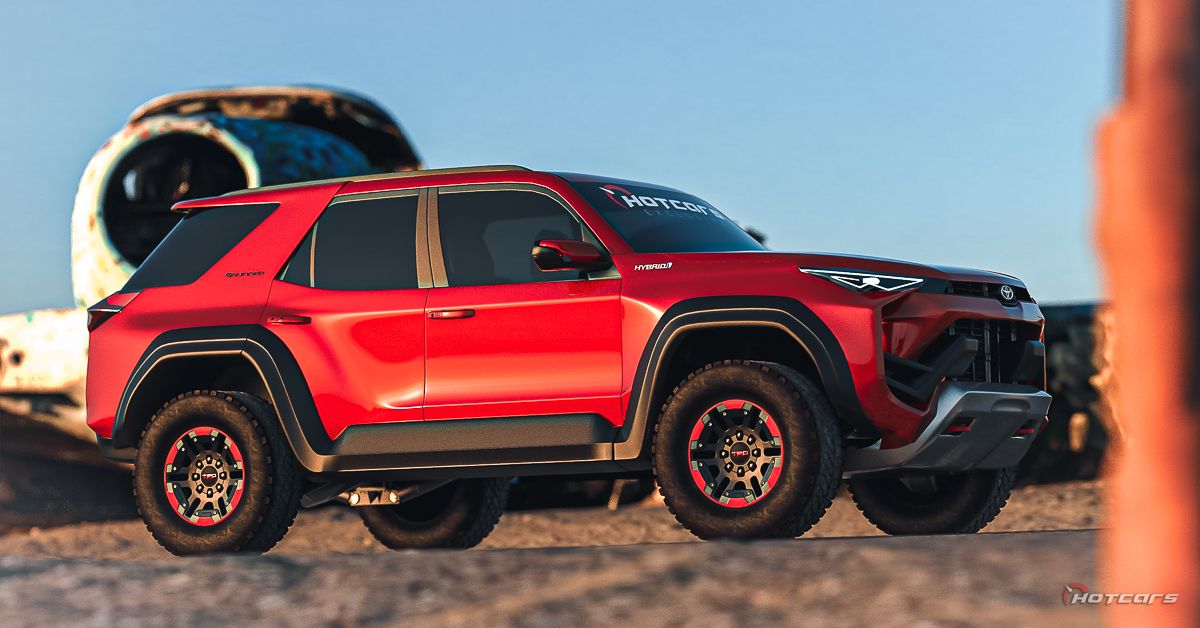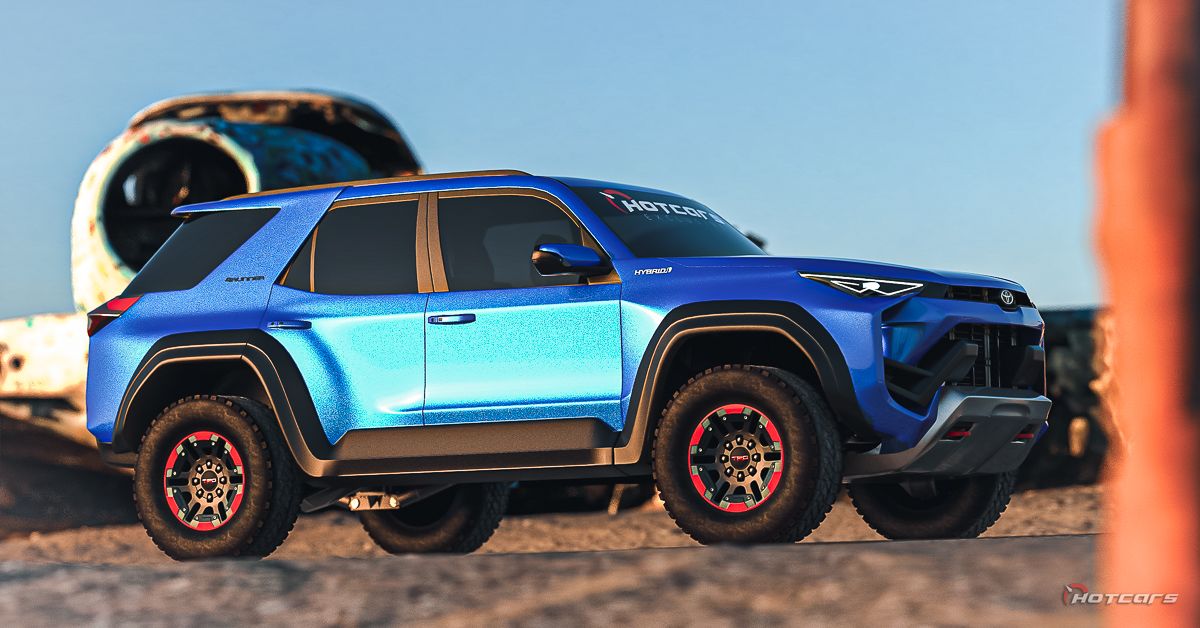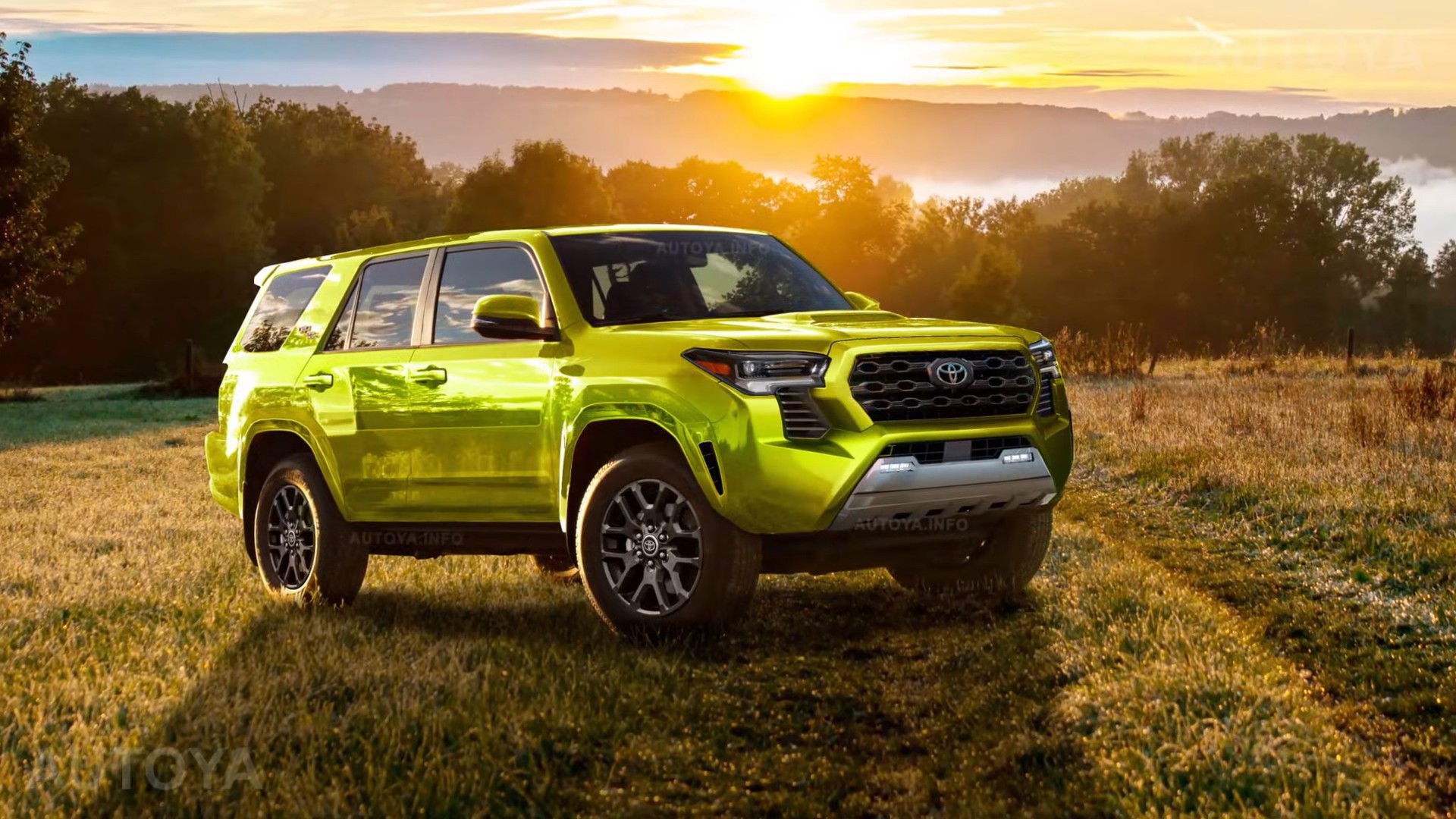The Future Of Fuel Efficiency: Exploring The Toyota 4Runner’s Potential In 2025
The Future of Fuel Efficiency: Exploring the Toyota 4Runner’s Potential in 2025
Related Articles: The Future of Fuel Efficiency: Exploring the Toyota 4Runner’s Potential in 2025
Introduction
With enthusiasm, let’s navigate through the intriguing topic related to The Future of Fuel Efficiency: Exploring the Toyota 4Runner’s Potential in 2025. Let’s weave interesting information and offer fresh perspectives to the readers.
Table of Content
The Future of Fuel Efficiency: Exploring the Toyota 4Runner’s Potential in 2025

The Toyota 4Runner, a stalwart in the off-road and adventure vehicle segment, has consistently been known for its ruggedness and capability. However, the automotive landscape is rapidly evolving, driven by increasing fuel efficiency regulations and consumer demand for environmentally responsible vehicles. This raises a crucial question: what will the fuel economy of the Toyota 4Runner look like in 2025?
While specific fuel economy figures for the 2025 model year are not yet available, several factors suggest a potential shift towards improved efficiency. These include:
1. Technological Advancements:
- Hybrid Powertrains: Toyota has a long history of hybrid technology, successfully implemented in models like the Prius and Camry. It is conceivable that the 4Runner could adopt a hybrid system, combining a gasoline engine with an electric motor for increased fuel efficiency. This technology would likely be paired with a regenerative braking system, further enhancing fuel economy.
- Engine Optimization: Advancements in engine design, such as direct injection and variable valve timing, can significantly improve fuel efficiency. Toyota’s commitment to research and development suggests continuous optimization of its powertrains, potentially leading to more efficient engines in the 4Runner.
- Lightweight Materials: Using lightweight materials like aluminum and composites in the 4Runner’s construction can reduce overall weight, directly impacting fuel consumption. This trend towards lighter vehicles is becoming increasingly prevalent across the automotive industry.
2. Regulatory Pressure:
- Fuel Economy Standards: Governments worldwide are implementing increasingly stringent fuel economy standards, pushing automakers to develop more efficient vehicles. To comply with these regulations, Toyota is likely to prioritize fuel efficiency improvements in its upcoming models, including the 4Runner.
- Emissions Regulations: Stringent emissions regulations are another driving force behind fuel efficiency advancements. Toyota, known for its environmental commitment, is expected to continue developing technologies that reduce emissions, potentially leading to more efficient engines in the 4Runner.
3. Consumer Demand:
- Environmental Awareness: Consumers are becoming increasingly aware of the environmental impact of their vehicle choices. The demand for fuel-efficient vehicles is growing, prompting manufacturers to prioritize efficiency in their offerings.
- Fuel Costs: Fluctuating fuel prices make fuel efficiency a crucial consideration for consumers. A more fuel-efficient 4Runner would be attractive to those seeking to minimize their fuel expenses.
The Importance of Fuel Efficiency:
The potential for improved fuel economy in the 2025 Toyota 4Runner is significant for various reasons:
- Reduced Fuel Costs: A more efficient 4Runner would translate into lower fuel costs for owners, saving them money in the long run.
- Lower Emissions: Enhanced fuel efficiency contributes to reduced greenhouse gas emissions, positively impacting the environment.
- Increased Range: Improved fuel economy would allow the 4Runner to travel further on a single tank of fuel, enhancing its utility for long-distance travel and off-road adventures.
- Enhanced Competitiveness: In a market increasingly focused on fuel efficiency, a more efficient 4Runner would strengthen its position against competitors.
Exploring the Potential:
While predicting the exact fuel economy of the 2025 Toyota 4Runner is challenging, considering the factors mentioned above, a significant improvement compared to current models is plausible.
FAQs:
Q: Will the 2025 Toyota 4Runner be a hybrid?
A: While Toyota has not officially confirmed a hybrid powertrain for the 2025 4Runner, the possibility exists given the company’s commitment to hybrid technology and the growing demand for fuel-efficient vehicles.
Q: What other fuel-saving technologies could be implemented in the 2025 4Runner?
A: In addition to hybrid technology, other potential fuel-saving technologies include:
- Start-stop System: Automatically shuts off the engine when the vehicle is stopped, reducing fuel consumption.
- Active Grille Shutters: Close the grille when not needed to reduce air resistance and improve fuel economy.
- Aerodynamic Optimization: Streamlining the vehicle’s body to reduce drag and improve fuel efficiency.
Q: Will the 2025 Toyota 4Runner still be as capable off-road?
A: While fuel efficiency improvements are likely, Toyota is expected to maintain the 4Runner’s renowned off-road capabilities. The company is likely to prioritize technological advancements that enhance both efficiency and performance.
Tips for Improving Fuel Economy:
- Regular Maintenance: Ensure proper maintenance, including tire pressure checks and engine tune-ups, to optimize fuel efficiency.
- Driving Habits: Avoid aggressive acceleration and braking, practice smooth driving techniques, and use cruise control on highways to improve fuel economy.
- Cargo Management: Minimize unnecessary weight in the vehicle, as extra weight increases fuel consumption.
- Fuel-Efficient Tires: Consider using low-rolling resistance tires designed to reduce fuel consumption.
Conclusion:
The 2025 Toyota 4Runner is expected to incorporate advancements in fuel efficiency technology, driven by regulatory pressures, consumer demand, and Toyota’s commitment to environmental responsibility. While specific fuel economy figures are not yet available, a significant improvement compared to current models is plausible. The future of the 4Runner likely lies in a balance between rugged capability and fuel efficiency, ensuring its continued relevance in the evolving automotive landscape.








Closure
Thus, we hope this article has provided valuable insights into The Future of Fuel Efficiency: Exploring the Toyota 4Runner’s Potential in 2025. We appreciate your attention to our article. See you in our next article!
You may also like
Recent Posts
- The 2025 Toyota 4Runner: A Legacy Reimagined
- The Enduring Appeal Of The Toyota 4Runner Manual Transmission 4×4
- The Toyota 4Runner TRD Off-Road: A Legacy Of Adventure, Reimagined For 2025
- The Anticipation Builds: Unveiling The Next Generation Toyota 4Runner
- The 2025 Toyota 4Runner TRD: A Legacy Of Adventure Reimagined
- The Future Of Color: Exploring The Significance Of Color Trends
- The Toyota 4Runner: A Legacy Of Capability, Now With Expanded Seating
- The Toyota 4Runner Timing Belt: A Vital Component For Engine Longevity
Leave a Reply